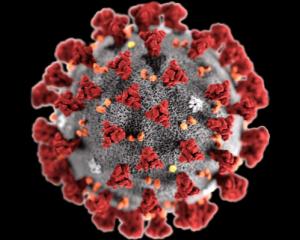
A mere 4mm of rain will have fallen in January, if the forecast for fine weather holds for today and tomorrow.
Tauranga meteorologist John Maunder said it would be the third equal lowest rainfall since records began 115 years ago and the second driest January - beaten only by the 1mm that fell in January 1928.
Rural Western Bay was now so dry an "extreme fire danger" had been declared and the issuing of fire permits suspended.
MetService said the Western Bay could expect a few drizzle patches this Saturday, with the weather clearing on Sunday. The outlook for the next four weeks was for more of the same, with anticyclones bringing extended periods of dry weather and light winds to the Bay.
Pongakawa dairy farmer Jonathon Boyle said the "big dry" had become so severe he was now feeding out $800 worth of supplementary feed every day to keep his cows milking.
"We are entering the grip of a drought," he said.
Reduced milk flows meant his cheques from Fonterra were half what they would normally be. "By the time you take all our costs out, you are losing money."
The grass had dried off so much on his 400 acre farm that Mr Boyle was now sending some of his older cows, and cows that were not in calf, to the works.
"Any cows that are not up to it will go," he said.
Federated Farmers Bay of Plenty provincial president John Scrimgeour said milk production was sliding, with pastures looking really bare for a lot of farmers.
"There are a lot more stock trucks on the road as farmers try to unload surplus stock - anything to reduce their feed requirements."
Looking ahead, there was no sign of the significant rainfall needed to properly moisten soils and get the grass growing again.
And while the impact on dairying was more immediate, he said sheep farmers were selling their store lambs rather than fattening them up, meaning their incomes would also take a big hit.
"The impact is really starting to be felt. As the dry goes on, the pressure will mount."
Mr Scrimgeour said the dry weather was not as severe for the small percentage of Bay dairy farmers who were able to irrigate their pastures. The last severe drought he could recall was in 1997-98.
The only positive for the Bay's agricultural community was that the dry weather was holding the kiwifruit vine disease Psa in check.
Peter Ombler, chairman-elect of Kiwifruit Vine Health, said water was a key vector for Psa and the lack of rain was a good thing.
"But Psa will survive this, it is sitting waiting its turn," he said.
Mr Ombler said the key for growers was to keep an eagle eye on the weather so that when the rain returned they would have sprayed a good protective coating of copper on their vines.
"Autumn is the time that we expect Psa will rear its head again."
He said the crop had done more than half of its growing, with green kiwifruit looking quite strong.
"Overall, the green crop will be reasonable," he said.
There were huge variations in the gold crop and it would be an uncertain season, Mr Ombler said.
"We need a bit more time to see what is going on there."
City council water supply manager Peter Bahrs said water usage was steadily climbing but had not reached the 50,000cu/m a day that would trigger water restrictions. Consumption was currently sitting at about 45,000cu/m and had been rising since the last rain on January 4.
- John Cousins of the Bay of Plenty Times












